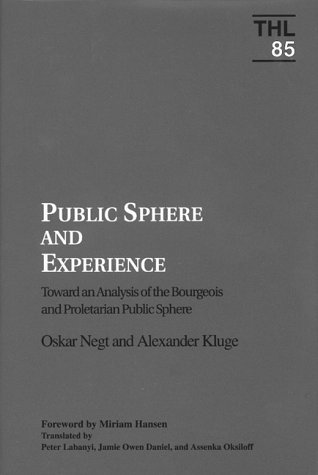Vladimir Mayakovsky: My Discovery of America (1926/2005) [Russian/English]
Filed under book | Tags: · 1920s, capitalism, futurism, poetry, russia, technology, united states

Touring the United States in 1925, the Russian Futurist poet and propagandist Vladimir Mayakovsky observed at first hand what he considered to be the model for Soviet technological development. Writing in his typical declamatory style, he found much to celebrate in the modernised, industrialised America of the 1920s – creativity and advancement, a ‘primitive futurism’. But he also decried the social injustices of uncaring capitalism, losing no opportunity to propound his own political beliefs.
Presented here in full for the first time in the English language, My Discovery of America forms a series of humorous sketches, thoughts, jottings and poems, the significance of which resounds from the early twentieth century through to our own times.
First published as Мое открытие Америки in Russian in 1926
With an introduction and translated by Neil Cornwell
Foreword by Colum McCann
Publisher Hesperus Press, 2005
Modern Voices series
ISBN 1843914085, 9781843914082
138 pages
View online (HTML) [Russian]
PDF (PDF) [English]
Oskar Negt, Alexander Kluge: Public Sphere and Experience: Toward an Analysis of the Bourgeois and Proletarian Public Sphere (1972–)
Filed under book | Tags: · capitalism, mass media, politics, proletariat, public sphere, technology, television

“The ‘public sphere’ is widely debated in contemporary literary and cultural studies circles in the United States. The topic’s significance underscores the pressing problem of the location of these contemporary debates: Is the ‘public sphere’ a single authoritative and universal space in which the various positions in these debates compete for recognition, or does it consist of multiple local spaces spread over diverse collectivities? The term ‘public’ has emerged with new urgency in different disciplines and contexts history, cinema and television studies, art criticism, feminist, gay and lesbian, postcolonial, and subaltern perspectives, and is proliferating in titles of books, articles, and college courses. Public Sphere and Experience opens the discussion of the material conditions of experience into an arena that had previously figured only as an abstract term: the media of mass and consumer culture, in particular the so-called new media.”
Originally published as Öffentlichkeit und Erfahrung: Zur Organisationsanalyse von bürgerlicher und proletarischer Öffentlichkeit, 1972, Suhrkamp Verlag, Frankfurt
Translated by Peter Labanyi, Jamie Owen Daniel, and Assenka Oksiloff
Foreword by Miriam Hansen
Publisher University of Minnesota Press, 1993
Theory and History of Literature series, 85
ISBN 0816620318, 9780816620319
305 pages
PDF (7 MB)
Comment (1)Philippe Aigrain: Cause commune: l’information entre bien commun et propriété (2005) [French]
Filed under book | Tags: · capitalism, commons, digital human rights, economy, freedom of information, information technology, intellectual property, property rights, technology

L’information et ses technologies refaçonnent notre univers technique, social et éthique, mais ces bouleversements se font dans deux directions opposées selon que l’on choisit d’en encourager l’appropriation privée ou d’en faire des biens communs.
D’un côté, l’extension des domaines couverts par les brevets (molécules pharmaceutiques, variétés végétales, séquences génétiques, logiciels) restreint, pour le profit de quelques multinationales, l’accès à des ressources essentielles telles que les médicaments, les semences et l’information. La concentration des médias – notamment audiovisuels – menace la démocratie là où elle existe.
De l’autre côté, la production et le partage de l’information et des créations sont plus libres qu’avant, et la multiplication des échanges esquisse une société mondiale, diverse et solidaire. Les médias coopératifs, les logiciels libres, les publications scientifiques ouvertes et les autres biens communs réinventent la démocratie.
Comment les acteurs de ces nouveaux domaines peuvent-ils faire cause commune par-delà ce qui sépare les logiciels des ressources biologiques, ou l’art des sciences ?
Comment l’information peut-elle servir les biens publicssociaux de la santé, de l’éducation ou de la solidarité au lieu de contribuer à les détruire ?
Quelles alliances peut-on envisager entre les sociétés et les États, gardiens irremplaçables des biens communs épuisables que sont l’eau ou l’air ?
Dans cet ouvrage, Philippe Aigrain analyse les causes et les origines d’une situation paradoxale et les tensions qu’elle suscite. Il propose une politique qui remette les êtres humains aux commandes de ces transformations.
Publisher Fayard, 2005
Collection Transversales series
ISBN 2213623058, 9782213623054
283 pages
La version électronique du livre est mise à disposition sous un contrat Creative Commons BY-NC-ND.
author
publisher
series
google books

